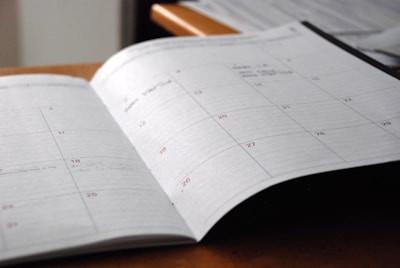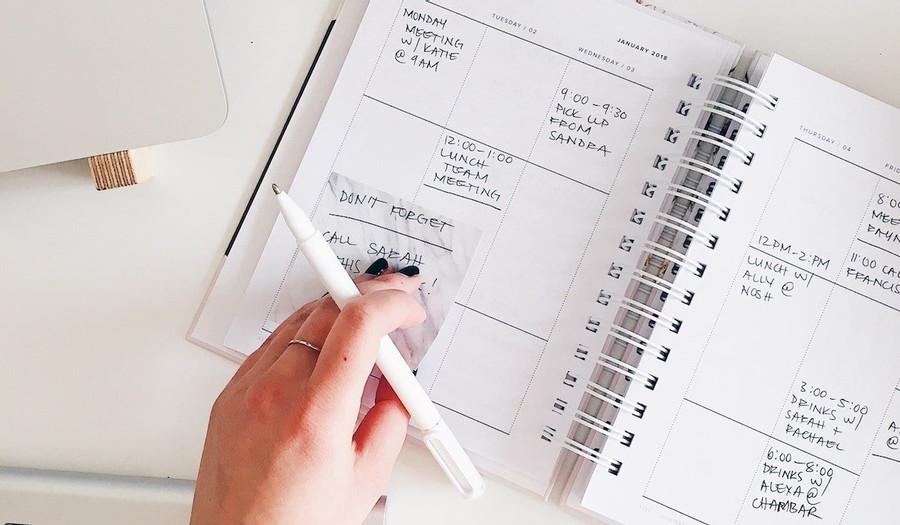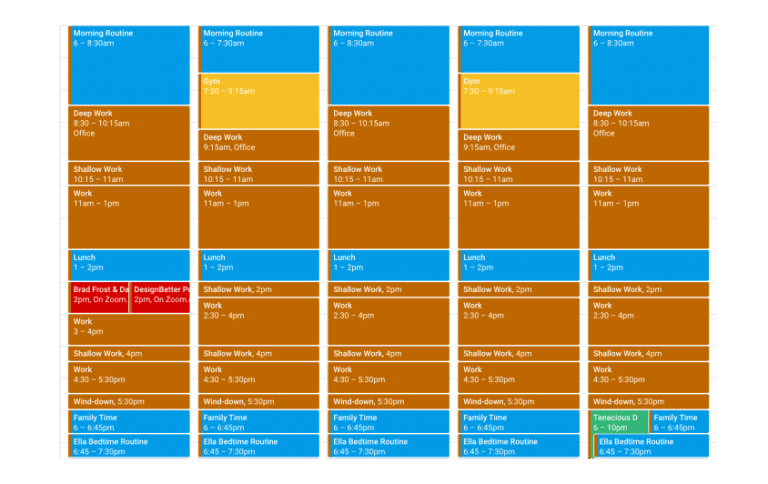Time blocking 101: A step-by-step guide to mastering your daily schedule
Curated from: blog.rescuetime.com
Ideas, facts & insights covering these topics:
5 ideas
·233K reads
541
5
Explore the World's Best Ideas
Join today and uncover 100+ curated journeys from 50+ topics. Unlock access to our mobile app with extensive features.
Time blocking
It's the practice of planning out every moment of your day in advance and dedicating specific time “blocks” for certain tasks and responsibilities.
When you fill your calendar with the tasks and things you want to do, it’s harder for others to steal your time.
31.5K
78.5K reads
Time blocking and focus
By scheduling every minute of your day you not only guard against distraction but also multiply your focus.
Also, focusing on one task at a time can make you up to 80% more productive than splitting your attention across multiple tasks.
7.63K
49K reads
Cons of the time blocking practice
- It takes a lot of time and effort.
- Few of us (if any) have the same schedule every day.
- We’re bad at estimating how long tasks will take to do.
- Constant interruptions and “urgent” tasks can destroy your system.
- Flexibility is key in most workplaces.
- You can lose sight of the bigger picture if you focus just on each day.
6.76K
57.5K reads
Time blocking your schedule
- Know your high-level priorities and goals.
- Start creating blocks for your time outside of work (morning routines, time with family/friends etc.)
- Schedule your most meaningful work for when your energy and attention naturally peak.
- Add blocks for reactive tasks each day (emails, calls, meetings).
- Write down your daily to-do list (for work, home, and family/social) and fill it in.
8.52K
23K reads
Tips from time blocking experts
- Place buffers in between tasks.
- Schedule your breaks too.
- Use the right daily time management strategies to stay on track.
- Overestimate how long things will take (at least to start).
- Put in time for downtime, relaxation, and learning.
- Make sure the people around you understand what you’re working on.
- Revise as needed.
8.58K
25.4K reads
IDEAS CURATED BY
Francisco W.'s ideas are part of this journey:
Learn more about timemanagement with this collection
How to avoid email overload
How to organize your inbox
How to write effective emails
Related collections
Similar ideas
1 idea
Time blocking 101: A step-by-step guide to mastering your daily schedule
blog.rescuetime.com
4 ideas
The Complete Guide to Time Blocking
todoist.com
7 ideas
How to make a daily schedule that won't ruin your day
blog.rescuetime.com
Read & Learn
20x Faster
without
deepstash
with
deepstash
with
deepstash
Personalized microlearning
—
100+ Learning Journeys
—
Access to 200,000+ ideas
—
Access to the mobile app
—
Unlimited idea saving
—
—
Unlimited history
—
—
Unlimited listening to ideas
—
—
Downloading & offline access
—
—
Supercharge your mind with one idea per day
Enter your email and spend 1 minute every day to learn something new.
I agree to receive email updates


